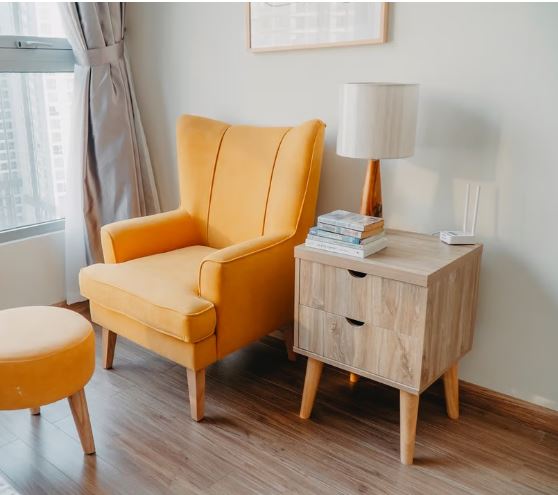What to Look for When Selecting Furniture That’s Easy to Maintain

When investing in furniture, most people prioritize aesthetics, comfort, or price. But one of the smartest considerations you can make—especially if you have a busy lifestyle—is how easy it will be to maintain. Daily wear and tear, food spills, pet hair, dust, and accidental scuffs are part of everyday life. Choosing low-maintenance furniture doesn’t mean sacrificing style; it means being smart about the materials, design, and upkeep requirements.
Whether you’re furnishing your home, apartment, or office space, furniture should serve both function and convenience. Easy-to-clean and durable pieces help reduce stress and save you time, especially in high-traffic areas like living rooms and dining spaces. Knowing what features to look for can help you avoid frustration later on.
Here’s what you need to know when selecting furniture that supports a clean, clutter-free, and low-maintenance lifestyle.
Material Choice Is Everything
One of the first things to assess when shopping for low-maintenance furniture is the material. Upholstery plays a major role in how easily a piece can be cleaned. For example, synthetic fabrics like microfiber, polyester blends, and faux leather are known for their durability and resistance to stains. They’re also easier to wipe down or vacuum compared to natural fibers like cotton or linen, which tend to absorb moisture and dirt more easily.
For hard surfaces, opt for sealed wood, metal, or tempered glass. These materials are less porous and don’t easily trap grime. Wood furniture with a quality lacquer or veneer finish resists scratches and is less likely to stain than untreated surfaces. Metal frames, particularly in modern industrial or minimalist designs, are not only sleek but virtually effortless to maintain.
While luxurious fabrics and untreated woods may look appealing, they require more care and may not be the best choice for families with kids, pet owners, or anyone who prefers a low-effort lifestyle.
Consider Modular and Multi-Functional Designs
Modular furniture is an excellent solution for those seeking simplicity and flexibility. Many modular systems are designed with removable, washable covers or replaceable parts. This makes them ideal for long-term use without the commitment of constant professional cleaning.
Multi-functional furniture like sleeper sofas, storage ottomans, and fold-out tables also contributes to a more organized home. These pieces help reduce clutter and eliminate the need for extra storage solutions, which often collect dust and take up unnecessary space. When browsing stores or online retailers like Futonland, look for features like zip-off cushions, stain-resistant fabric tags, and scratch-resistant coatings. These small details can make a significant difference in how a piece holds up over time. The right design won’t just enhance your space—it’ll simplify your routine.
Evaluate Color and Pattern for Longevity
Color isn’t just a style decision—it can be a maintenance one too. Darker shades and patterns tend to be more forgiving when it comes to visible stains and general wear. Lighter colors may brighten a room, but they’re also more likely to show dirt, spills, or fading from sunlight exposure.
Neutral tones like taupe, gray, navy, or charcoal are stylish and practical. They provide a classic look that doesn’t easily go out of style, and they’re much easier to maintain than bright whites or pastels. Meanwhile, patterned upholstery—such as geometric prints or subtle textures—can camouflage minor blemishes between cleanings.
That said, balance is key. You don’t want to feel like your home is draped in dark, heavy fabrics simply for the sake of stain resistance. Blending muted base tones with accent pieces like throw pillows or rugs adds personality without compromising ease of care.
Check for Maintenance Instructions and Warranties
Before making a purchase, take a moment to review the manufacturer’s cleaning instructions. Some materials require specific cleaning products, while others are more versatile. It’s helpful to know whether a cushion cover can be machine-washed or if it needs to be professionally dry-cleaned. That knowledge could sway your decision when comparing similar items.

Also, don’t underestimate the value of a furniture warranty. Many reputable retailers offer warranties on fabric wear, frame durability, and workmanship. This is particularly helpful for long-term investments like sofas, beds, and dining sets. A strong warranty gives you confidence that the item is designed to last—and that the manufacturer stands behind its quality.
Warranties also help reduce replacement costs, especially if you experience an unexpected defect or material failure. Understanding what’s covered before you buy can help you evaluate not only the product but the company’s commitment to customer service.
The right furniture should support your daily life, not slow it down. By prioritizing easy-to-clean materials, modular features, and thoughtful design, you set yourself up for long-term satisfaction and less upkeep. Whether you’re furnishing a small apartment or a spacious family home, low-maintenance furniture lets you focus on what matters most—living comfortably and stylishly without the hassle.







